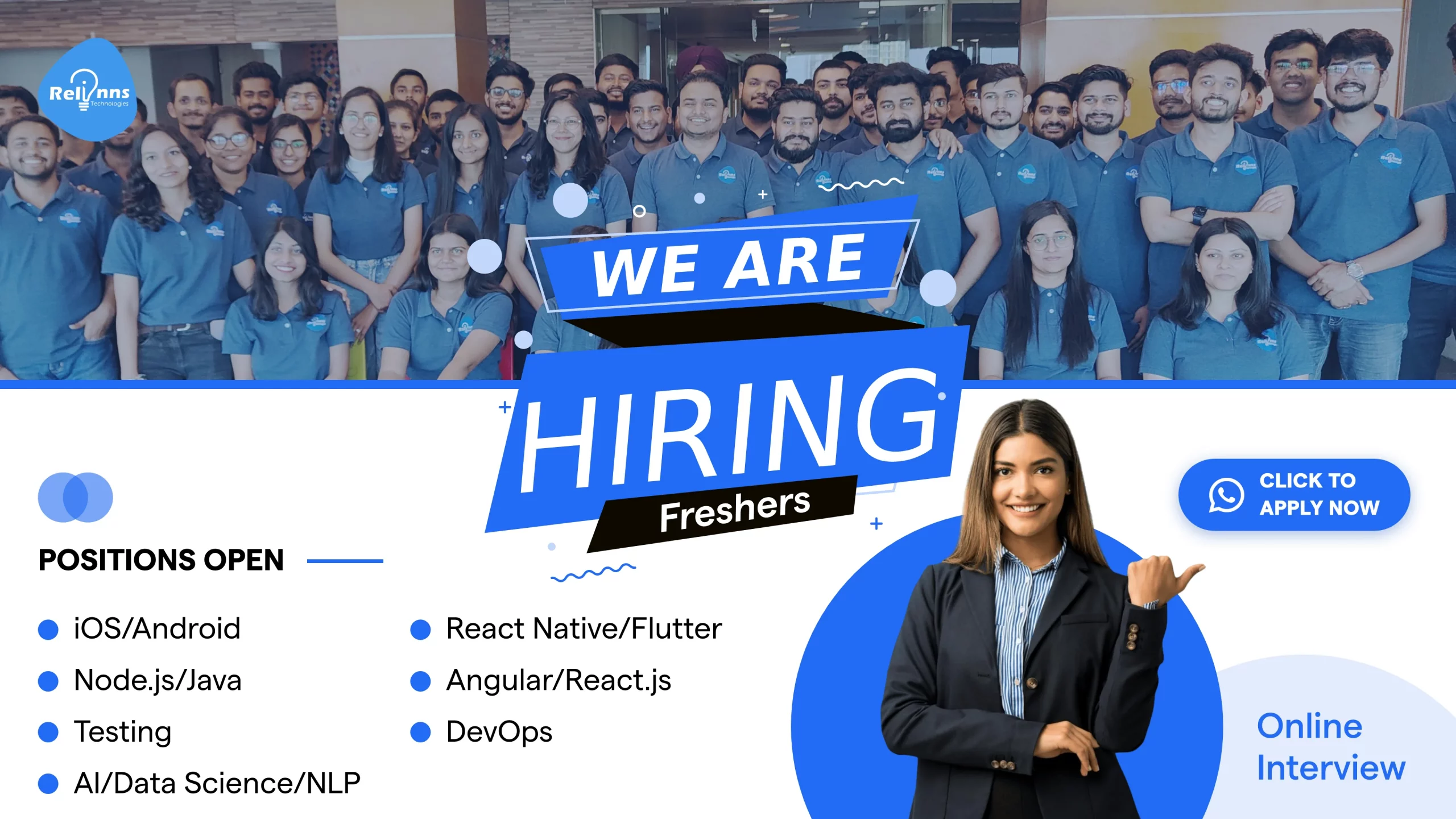What skills should I test while hiring Java Developers?
Posted on April 1, 2024 at 05:30 PM

Introduction
Java is a popular programming language. Thus many companies need to hire Java developers. As of March 2021, more job posts on Indeed sought Java developers than any other language, according to Stackify. Java is the IT industry’s, Lingua Franca. It’s a desktop and server code portability platform that helps build and share apps across platforms. Object-oriented Java has a just-in-time compiler.
Who is a Java Developer?
A Java Developer is a computer software programmer who utilizes Java to construct computer applications, websites, and other client and server-side needs. A Java Developer creates and maintains Java-based programs. Day-to-day Java tasks can include owning a specific program or working on multiple at once.

As a Java developer, you’ll probably work in IT. Your organization may have a single IT team or several smaller ones focusing on specific projects. Agile uses the second way.
2022’s Top 10 Java Developer Skills that you should look for
1. Core Java Fundamentals – Java Developer Skill Set
Java basics first
Core Java developer abilities are the basics a Java developer must-have. Candidates must know these Java essentials to show they understand Java development. Java developer talents include:
OOP
OOP is Java’s governing philosophy. It couples data and functions to improve code modularity, efficiency, safety, and stability. OOP features include: – Abstraction hides complexity and only displays important info. – Inheritance lets a child class inherit properties from a parent or superclass. – Polymorphism offers a single interface regardless of data types or classes. – Encapsulation binds data to its code and shields it from external tampering.
Interface
Java’s interface has abstract methods. Constants, static methods, default methods, and nested types are included. These Java developer basics will assist programmers in containerizing code and improving software development.
Serialization/deserialization
Serialization converts an item into bytes, whereas deserialization recreates an object from a byte stream. Hibernate, JPA, RMI, JMS, and EJB use the former.
2. Java Web Technologies – Web App Development with Java!

Java is a mission-critical component of your company’s tech stack if you need multi-tier web application development and software solution building expertise. Java web technologies help developers build sophisticated, dynamic web apps. It allows candidates’ looking for front-end, backend, and full-stack Java developer talents. Java developers must have this skill set. 2022 will stress smart hiring. Therefore onboarding a candidate with multi-tier talents will be advantageous. Most projects require these Java web skills:
HTML
It is a programming language that is used to create web pages. It helps aspiring web content developers. CSS is a computer language that controls how HTML elements appear on a website’s user end. It lets developers alter design and layout to format web content.
JavaScript
It is a logic-based programming language used to produce dynamic online content. JSP helps create vibrant, platform- and server-independent web apps quickly.
Servlet API
A Java API used to construct and run web applications. It offers a platform-independent service to its users and enables dynamic web page construction, data from databases or third-party sources, and more. The above skills will help developers build Java web applications and meet expectations. Your criteria can be generic or specific. Java is a vast, endless realm. Thus it would help if you recruited accordingly.
3. Java web frameworks
Niche Java Web Frameworks Backend Java Programming
Java web developers must also comprehend web frameworks. Frameworks are pre-written code templates or references. Developers can modify these frameworks to create new applications or solutions without starting from scratch. The most niche backend developer skill in 2022 is mastery of the major Java web frameworks. If you want the best applicant, examine this talent.
Popular Java frameworks in 2022 include
Spring’s speed, simplicity, safety, and efficiency are popular with developers. SpringMVC with Spring Boot makes Java reactive, contemporary, and cloud-ready. – Oracle’s Java Server Faces (JSF) encapsulates client-side technologies, including CSS, JavaScript, and HTML, to develop UIs. – If your organization uses numerous databases, hire a Hibernate-savvy Java developer. Hibernate uses ORM to map Java classes to database cells or tables.
Businesses looking to construct complicated, high-performing Java online apps use Google Web Toolkit. Any developer will benefit from knowing its utilization. – Struts reduce development time for enterprise-grade Java apps. Braces support other Java frameworks and AJAX, JSON, and REST plugins.
Play prioritizes convention over configuration for Java programming. The solution’s scalability is enhanced by its asynchronous processing. A Java developer who knows the above frameworks may create solutions quickly.
4. System Design and Architecture: Pro Java Developer Skills
System design and architecture are the foundation of any application, whether software or a website. While developers would use their Java development experience and problem-solving skills case-by-case, understanding Java design patterns would help. Design patterns are established solutions to common issues.
They are: – Singleton, Factory, Abstract Factory, Builder, and Prototype are Creational Design Patterns. – Adapter, Composite, Proxy, Flyweight, Facade, Bridge, and Decorator are Structural Design Patterns. – Behavioral Design Patterns include Template Method, Mediator, Chain of Responsibility, Observer, Strategy, Command, State, Visitor, Interpreter, Iterator, and Memento. – Miscellaneous Design Patterns include DAO, DI, and MVC. We’re not done yet! Besides the design-related Java developer abilities listed above, they should also have practical skills to build these designs into highly functioning systems.
Java applications were traditionally monolithic. Architectures are becoming smaller, modular, and distributed, bucking this tendency. As such, Microservices-savvy developers would be of value to the company. A developer that understands system design and architecture can offer highly adaptable, scalable, understandable, and maintainable projects, giving you boundless potential.
5 .Additional DevOps Tools
DevOps has streamlined the software development life cycle regardless of programming language. It bolsters Java development using CI and CD (CD).
In such contexts, advanced Java abilities can benefit from these DevOps tools: Apache ANT automates software build processes via a Java library and command-line tool.
Apache Maven: Like ANT, Maven helps build, publish, and deploy multiple projects. Git is an open-source version management system that helps programmers collaborate.
Docker is a DevOps technology for building, shipping, and executing distributed applications on numerous computers. Jenkins is a DevOps tool that monitors recurring operations, enabling continuous integration. Chef is used for infrastructure and configuration management during project development.
Ansible automates application deployment, intra-service orchestration, cloud provisioning, and more. It boosts developer productivity and automation. If you locate a Java developer skilled in many languages and DevOps, they can provide your firm long-term value. You’ve got top-notch Java development talents.
6 .Database management for high-volume data maintenance

Big Data requires developers to understand database construction and maintenance. Java is behind several popular databases and data tools. If you’re recruiting a Java developer and want a pro-level specialist, look for these advanced skills:
SQL is used to store, alter, and retrieve data in RDBMS. It spawned MySQL and PostgreSQL. NoSQL database management systems may or may not support SQL queries. Popular NoSQL DBMS include Cassandra and MongoDB.
Oracle: most popular RDBMS (Relational Database Management System). While Oracle 19c is available, organizations still use 11g and 12c, proving its timelessness. Java-based Apache Hadoop manages and processes massive data. Pig, Hive, MapReduce, HDFS, HBase, etc., are popular Hadoop components. Tableau helps visualize data and derive business intelligence. Apache Kafka is a distributed data storage and processing platform.
Apache Camel’s rule-based routing and mediation engine helps developers integrate data-producing or-consuming systems. The Java mentioned above developer abilities allows them to work with large volumes of data, achieving your business’s Big Data dream.
7 .Top Testing Tools and Their Functions
Even Java developers should know how to write code and test its performance. Java testing tools include: – JUnit is a prominent Java unit testing framework used to test code.
It integrates testing into development, preventing rework or catastrophic failures. Selenium is an openly-sourced, automated testing framework for Java apps. Jenkins, Maven, and Docker can be integrated to ensure consistent testing. –
TestNG: The NG in TestNG means “Next Generation,” therefore, it’s a more polished version of JUnit and NUnit. Mockito helps unit test apps using dummy data and a mock interface. Mockito’s advantage is that developers don’t have to design mock objects. The preceding testing tools can analyze any Java app’s functionality. Choosing a candidate who knows these testing tools might reduce the need for a dedicated tester, killing two birds with one stone! To hire the top Java developers, you must evaluate their talents in designing scalable, secure, and dynamic IT systems.
8 .SOLID Principles: CoreConcept & Uses
Java OOP must follow SOLID principles. SOLID stands for five class-design concepts that Java developers should know. Every class should be responsible for a system unit or function. Software components must be expandable but not adjustable.
Liskov Substitution: A superclass’s subclasses can replace it without damaging the system. More extensive interfaces must be divided so that implementing classes use their methods. – Dependency Inversion: High-level modules shouldn’t depend on low-level modules. Both should be abstract. SOLID ensures modularity, readability, debuggability, refactorability, and maintainability. It saves time and effort without sacrificing code quality.
9 .JVM Internals: How Things Work
Recruiters must know the ins and outs of hiring, onboarding, and meeting employees’/candidates’ needs. Java developers must know about the Java Virtual Machine, Java’s heart. Java applications run in JRE, which JVM powers. It processes Java bytecode. WORA (Write Once, Run Anywhere) makes Java applications platform-independent. Java developers don’t need to understand the JVM, but it helps.
Knowing the JVM, its elements, and how they work helps them build vital programs. It shows they’re above average. You can assess a Java developer’s skills by asking questions about JIT compilation, multithreading, class loading, JVM options, collector, garbage collection, race conditions, concurrency handling, reflection, delegation, performance bottlenecks, and execution models, memory management, compile-time and runtime errors, and more.
10 .Java Soft Skills

A well-rounded Java developer must have both technical and soft abilities. – Java developers must communicate with various stakeholders. They should share their views and deliver technical or non-technical information. The Java developer must grasp your needs. To meet expectations, they must use active listening. Java developers must work with others, inside and beyond the team. They should have team spirit to collaborate smoothly. Developers must manage time.
Developers can meet deadlines with proper time management and organization. Developers will need innovation to solve problems that arise during the SDLC. These soft skills for Java developers will show if they’re suited for the job or your firm. Sure, be fussy.
Conclusion
Hiring takes time, effort, and money. Make recruiting a discourse, not a test. Each step (informal conversation/screen, first test, practical test, interviews, etc.) should be a dialogue opportunity, not a hurdle. Let them exhibit their skills if you want to hire top Java programmers.
Related Posts
We could talk tech all day. But we’d like to do things too,
like everything we’ve been promising out here.
